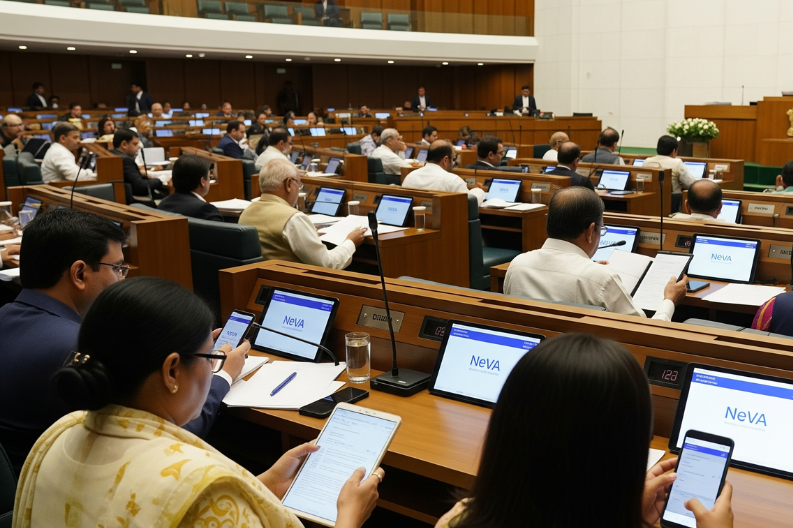The Delhi Legislative Assembly took a major leap on Monday as NeVA launch a Digital Shift, marking the beginning of a paperless future. With the introduction of the National e-Vidhan Application (NeVA), the assembly has embraced modern technology to make its functioning more efficient and transparent.
As part of this move, all 70 MLAs, including Chief Minister Rekha Gupta and opposition leaders, received iPhone 16 Pro devices along with tablets and iPads. These gadgets are strictly for official use, ensuring smooth access to legislative documents and real-time updates.
The paperless model is not just about convenience but also about sustainability. By reducing paper use, the assembly lowers its carbon footprint while improving transparency. Similar initiatives in states like Punjab and projects in Chandigarh have already shown how digital governance can bring citizens closer to decision-making processes.
The NeVA platform will allow MLAs to view bills, agendas, and reports digitally, eliminating piles of paperwork. It also enables better communication with citizens, ensuring more openness in legislative operations. Furthermore, digital tools speed up decision-making, improve efficiency, and make governance more accountable.
This step highlights a larger trend in India where assemblies are embracing technology to modernize governance. As more states adopt similar models, legislative work is expected to become faster, more transparent, and eco-friendly.
In conclusion, NeVA launch a Digital Shift has not only equipped MLAs with new tools but also positioned Delhi Assembly as a leader in digital governance. This bold step sets a benchmark for other states to follow, showing that technology and transparency can together build a stronger, more sustainable future



